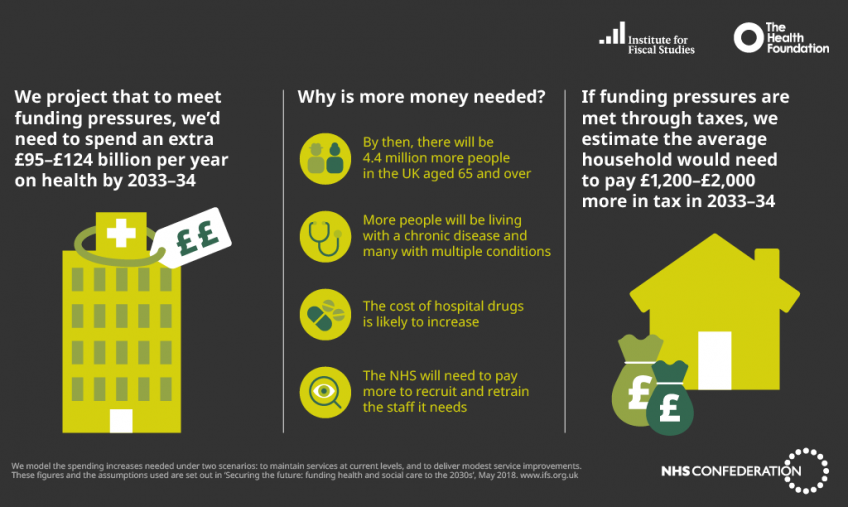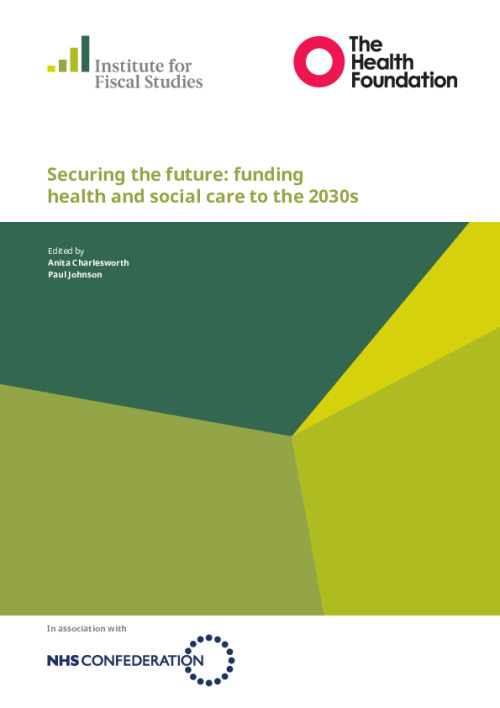On 5 July this year the NHS will be 70. In all its 70 years it has rarely been far from the headlines. It has been through more than its fair share of reforms, crises and funding ups and downs. Over that period, the amount we spend on it has risen inexorably. Yet, today, concerns about the adequacy of funding are once again hitting the headlines, as the health and social care systems struggle to cope with growing demand.
Looking forward, funding pressures are only going to grow. The population is getting bigger and older, and expectations are rising along with the costs of meeting them. Our analysis suggests that UK spending on healthcare will have to rise by an average 3.3% a year over the next 15 years just to maintain NHS provision at current levels, and by at least 4% a year if services are to be improved. Social care funding will need to increase by 3.9% a year to meet the needs of an ageing population and an increasing number of younger adults living with disabilities. If the widely acknowledged problems with England’s social care system – of limited eligibility, low quality and the perceived unfairness of the current, uncapped, means test – did result in reform, spending on social care would need to increase at a faster rate.
If we are to have a health and care system that meets the expectations of the population, we need to understand how and why spending has risen over time, where the money is spent, how costs are likely to develop in the future, and how we might go about meeting those costs. That is the purpose behind this collaboration between the Institute for Fiscal Studies and the Health Foundation, in association with the NHS Confederation.

How would you fund the NHS? Use this tool to try and reach these projected funding “targets” through increasing taxes and / or by cutting government spending in other areas.













